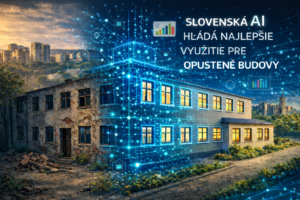INTERNATIONAL HPC SUMMER SCHOOL 2024
Graduate students and postdoctoral scholars from institutions in Australia, Europe, Japan and the United States are invited to apply for the 13th International High Performance Computing (HPC) Summer School, to be held on 7-12 July, 2024 in Kobe, Japan, hosted by the RIKEN Center for Computational Science. Applications to participate in the summer school will be accepted until 23:59 AOE January 31, 2024.
The summer school is sponsored by the RIKEN Center for Computational Science (R-CCS), the EuroHPC Joint Undertaking (EuroHPC JU), the Pawsey Supercomputing Research Centre (Pawsey) and the ACCESS program. Additional sponsors, who will conduct separate, internal selection processes, include EPCC (U.K.) and NICIS CHPC (South Africa). It is important to note that certain places for the 2024 school are still being offered on a preliminary basis and will be confirmed subject to funding availability.
The summer school will familiarize the best students in computational sciences with major state-of-the-art aspects of HPC and Big Data Analytics for a variety of scientific disciplines, catalyze the formation of networks, provide advanced mentoring, facilitate international exchange and open up further career options. Leading computational scientists and HPC technologists from partner regions will offer instruction in parallel sessions on a variety of topics such as:
- HPC and Big Data challenges in major scientific disciplines
- Shared-memory programming
- Distributed-memory programming
- GPU programming
- Performance analysis and optimization on modern CPUs and GPUs
- Software engineering
- Numerical libraries
- Big Data analytics
- Deep learning
- Scientific visualization
- Canadian, European, Japanese, Australian and U.S. HPC-infrastructures
The expense-paid program will benefit scholars from Australia, European, Japanese and U.S. institutions who use advanced computing in their research.
The ideal candidate will have many of the following qualities, however this list is not meant to be a “checklist” for applicants to meet all criteria:
- A familiarity with HPC, not necessarily an HPC expert, but rather a scholar who could benefit from including advanced computing tools and methods into their existing computational work
- A graduate student with a strong research plan or a postdoctoral fellow in the early stages of their research careers
- Regular practice with, or interest in, parallel programming
- Applicants from any research discipline are welcome, provided their research activities include computational work.
The first two days of the program comprise two tracks that run concurrently. You need to choose your preferred track in your application.
- An introduction to shared-memory parallelism and accelerator programming.
- Advanced distributed-memory programming.
School fees, meals and housing will be covered for all accepted applicants to the summer school. Reasonable flight costs will also be covered for those travelling to/from the school.
More information about summer school
 Urban buildings awaken: Slovak AI gives a second chance to underused spaces 4 Mar - Mestá sú živé organizmy, ktoré sa neustále menia. Mnohí z nás však v susedstve denne míňajú tiché svedectvá minulosti – prázdne školy, nevyužívané úrady či chátrajúce verejné budovy. Často si kladieme otázky: „Prečo je to zatvorené?“ „Nemohol by tu byť radšej denný stacionár, škôlka alebo kultúrne centrum?“
Urban buildings awaken: Slovak AI gives a second chance to underused spaces 4 Mar - Mestá sú živé organizmy, ktoré sa neustále menia. Mnohí z nás však v susedstve denne míňajú tiché svedectvá minulosti – prázdne školy, nevyužívané úrady či chátrajúce verejné budovy. Často si kladieme otázky: „Prečo je to zatvorené?“ „Nemohol by tu byť radšej denný stacionár, škôlka alebo kultúrne centrum?“ BeeGFS in Practice — Parallel File Systems for HPC, AI and Data-Intensive Workloads 6 Feb - This webinar introduces BeeGFS, a leading parallel file system designed to support demanding HPC, AI, and data-intensive workloads. Experts from ThinkParQ will explain how parallel file systems work, how BeeGFS is architected, and how it is used in practice across academic, research, and industrial environments.
BeeGFS in Practice — Parallel File Systems for HPC, AI and Data-Intensive Workloads 6 Feb - This webinar introduces BeeGFS, a leading parallel file system designed to support demanding HPC, AI, and data-intensive workloads. Experts from ThinkParQ will explain how parallel file systems work, how BeeGFS is architected, and how it is used in practice across academic, research, and industrial environments. When a production line knows what will happen in 10 minutes 5 Feb - Every disruption on a production line creates stress. Machines stop, people wait, production slows down, and decisions must be made under pressure. In the food industry—especially in the production of filled pasta products, where the process follows a strictly sequential set of technological steps—one unexpected issue at the end of the line can bring the entire production flow to a halt. But what if the production line could warn in advance that a problem will occur in a few minutes? Or help decide, already during a shift, whether it still makes sense to plan packaging later the same day? These were exactly the questions that stood at the beginning of a research collaboration that brought together industrial data, artificial intelligence, and supercomputing power.
When a production line knows what will happen in 10 minutes 5 Feb - Every disruption on a production line creates stress. Machines stop, people wait, production slows down, and decisions must be made under pressure. In the food industry—especially in the production of filled pasta products, where the process follows a strictly sequential set of technological steps—one unexpected issue at the end of the line can bring the entire production flow to a halt. But what if the production line could warn in advance that a problem will occur in a few minutes? Or help decide, already during a shift, whether it still makes sense to plan packaging later the same day? These were exactly the questions that stood at the beginning of a research collaboration that brought together industrial data, artificial intelligence, and supercomputing power.

